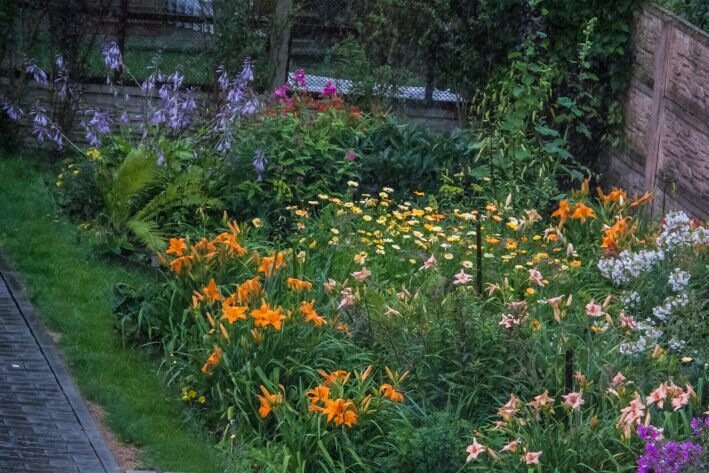Every summer resident's dream is to work less and harvest more. It sounds like science fiction, but it is possible if you approach the matter wisely.
For example, automatic drip irrigation from plastic bottles will save you from spending hours every day with a watering can.
And planting green manure in the fall will save you from digging up the beds in the spring. Even choosing the right plant varieties plays a role: some tomatoes and cucumbers require minimal attention, but produce kilograms of fruit.

The secret is in planning and little tricks. If you plant marigolds next to cabbage, they will scare away white butterflies, which means you won’t have to treat the leaves for caterpillars.
Mulching with film will reduce weed growth and conserve moisture, reducing the amount of watering.
Or, for example, using raised beds - they warm up faster, saving time on soil preparation.
We have collected dozens of ways that will free up your weekends and make your garden not a burden, but a source of joy.
Start with zoning. Divide the area into zones: "vegetable garden", "garden", "rest". This will simplify the care and save time on moving between the beds.
For example, plant herbs (rosemary, basil) near the seating area - their aroma will repel mosquitoes, and you will be able to enjoy the evening without chemical sprays.
Use perennials. Raspberries, currants, asparagus or rhubarb grow in the same place for years without requiring annual planting.
And flowers such as peonies or lupines decorate the area and attract pollinators without your participation.
Automate processes. Install rain barrels under gutters to save you from carrying heavy watering cans.
Make a drip irrigation system from medical droppers and hoses: connect it to a barrel, and the plants will receive moisture in measured doses.
Plant companion plants. Garlic next to strawberries will protect them from weevils, and basil next to tomatoes will improve their taste. Such combinations not only save space, but also reduce the risk of diseases.
Optimize your care. Instead of weekly weeding, cover the space between the rows with cardboard or agrofibre - weeds will not break through, and the soil will remain loose.
For feeding, use long-lasting fertilizers (bone meal, granulated compost) - they will last for the entire season.
Use technology. Install soil moisture sensors — they will tell you when it’s time to water. Or find mobile apps with reminders (when to feed, treat for pests).
Even a simple observation diary in a notebook will help you analyze mistakes and plan the next season more effectively.
Don't complicate things. Often, summer residents come up with extra work for themselves: perfectly even beds, endless garters, daily loosening.
Nature does not like perfectionism - sometimes minimal intervention is enough to get a generous harvest.
Focus on the essentials and your garden will become a place of relaxation, not hard labor.
